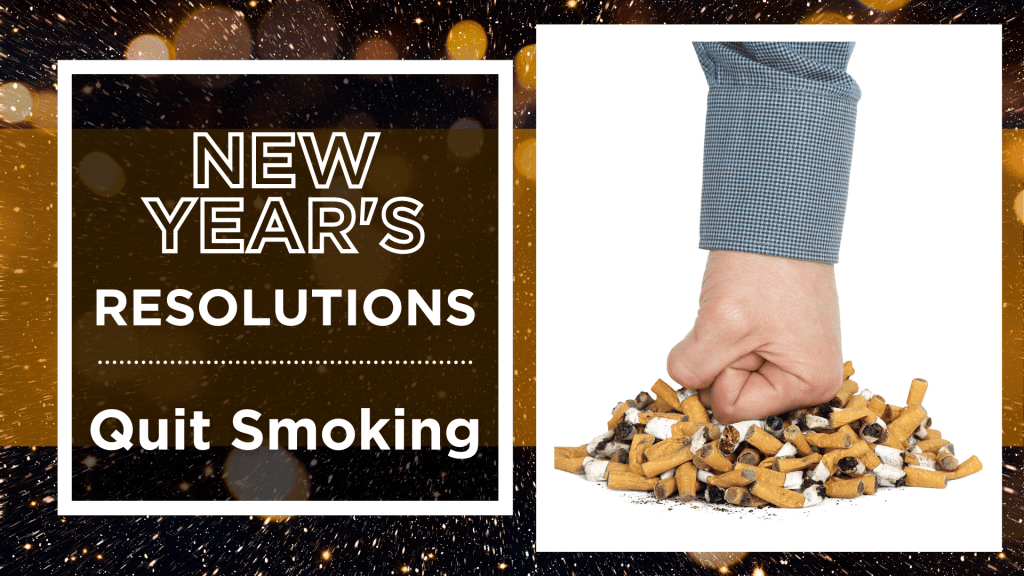
New Year’s Resolution: Quit Smoking
Giving up smoking is one of the five most common New Year’s resolutions. For many, it’s also the most difficult promise to keep because nicotine is so addictive.
“When people resolve to quit smoking, it can last for a few days or weeks and they may start again,” says Monica Bennett, health promotion specialist with Hamilton Health Sciences (HHS).
“Don’t `quit quitting.’”
“Slips and relapses are extremely common, so quitting can take multiple attempts. In fact, it takes on average about 30 attempts before a person quits smoking for good. So whatever you do, don’t ‘quit quitting.'”
Share your goal
“People are often tempted to quietly go it alone when trying to quit because they’re afraid of failing. But one of the best ways to raise your chance of succeeding is by leaning on your support network. By sharing your goal with family, friends and coworkers, this support network can help you stay on track by becoming your personal cheerleaders.”

Monica Bennett
Bennett recommends including Smokers’ Helpline in that support network. Smokers’ Helpline offers free 24/7 online and text messaging support.
Or call Telehealth 24 hours a day/seven days a week at 1-866-797-0000. (TTY at 1-866-797-0007.) Services are in both English and French, with telephone interpretation in more than 300 languages. The phone number on cigarette packages also connects to Telehealth.
Another great community resource is HamiltonQuitsSmoking.com, which works with a wide range of community partners to provide equitable support to every Hamilton resident looking to quit.
The 4Ds + rewards
People who smoke often have triggers, like having a cigarette with coffee or alcohol, or after a meal. Identifying those triggers and trying to manage them can help with cravings.
For this, Bennett recommends the 4Ds:
- Deep breathing — to help relax and focus on something else
- Drink water slowly — to keep your hands and mouth busy
- Distraction — find something else to focus on
- Delay – remind yourself, over and over if needed, that the cravings will pass
“Rewards can be great motivators. Estimate the amount of money spent on tobacco each week and instead of buying cigarettes, save for something special. Create daily rewards for yourself – like 10 minutes playing your favourite video game, or extra time with a good book.”
Medication
“Using medication in combination with your support network can double your chance of success. Nicotine replacement therapy (NRT) comes in many forms including patches, gum, lozenges, mouth spray and inhalers. It’s sold in pharmacies and some stores, and you don’t need a prescription. Using NRT can increase your chance of quitting by reducing nicotine cravings and withdrawal symptoms. Your family doctor, nurse practitioner or pharmacist can write a prescription for quit smoking medications like Champix and Zyban.”
Personal resolution: Mindfulness
While helping others with their healthy resolutions, Bennett has one of her own.
“I resolve to be more mindful in my everyday actions and interactions,” she says. “I’m starting by being actively mindful – at whatever I’m doing – for 15 minutes every day. Knowing that this is a practice – not an event – means I can be good at it, bad at it or anywhere in between and that’s just fine. I am good enough.”

